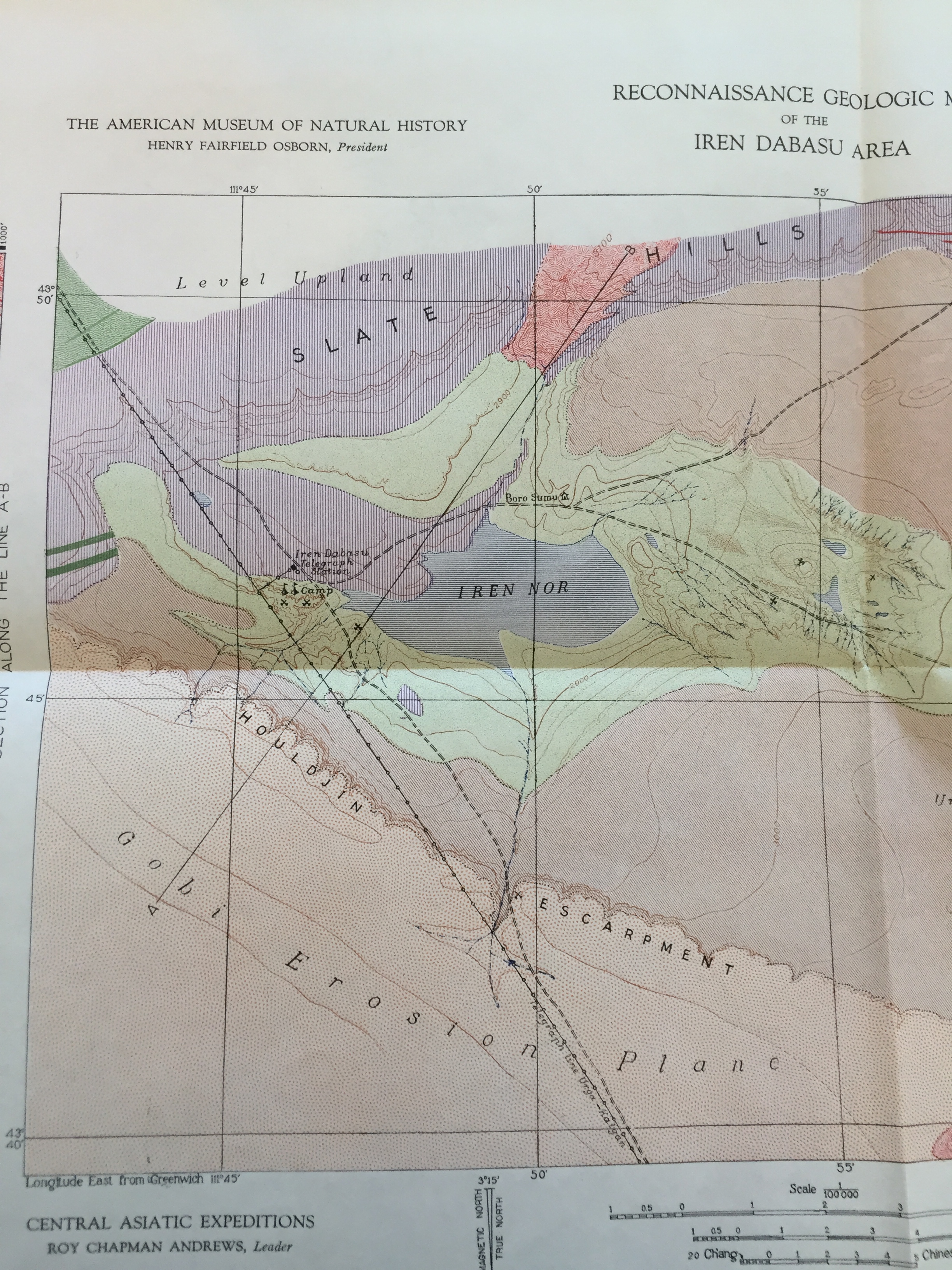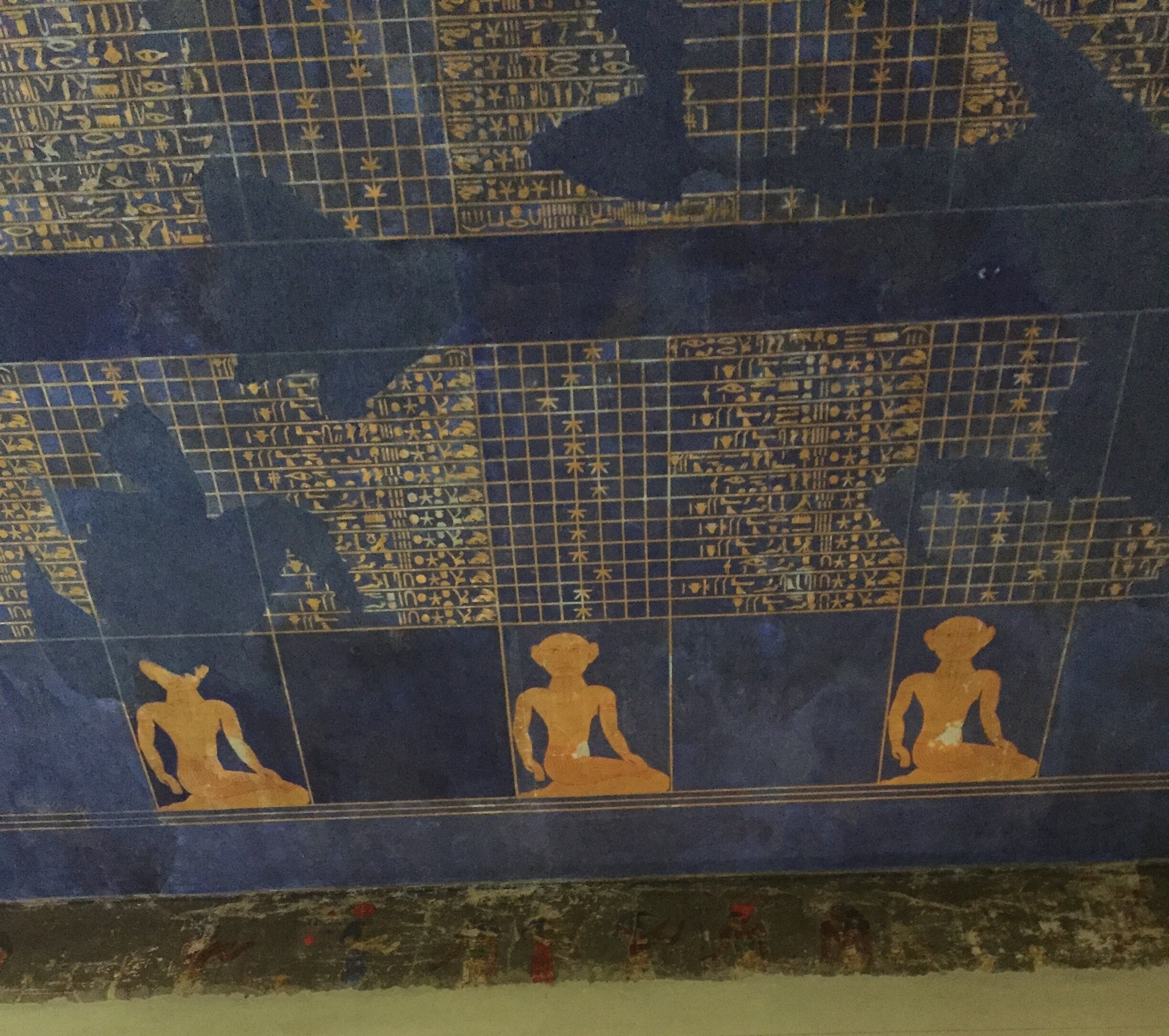
About Me
Email: e [dot] kern [at] unsW [dot] edu [dot] au
Twitter: @kern_em
I am a Postdoctoral Research Associate in New Earth Histories at the University of New South Wales, Sydney. As an interdisciplinary group working at the intersection of the history of the geo- and environmental sciences, our research explores how multiple world societies have constructed ideas about time, the earth, and the origins of the cosmos, and how those ideas continue to shape the modern world today.
As a member of New Earth Histories, I'm also running my own research projects on the history of paleoanthropology, genetics, and human identity. Currently I'm writing a book, The Cradle of Humanity: Science and the Making of African Origins, which looks at the two-century-long search for the lost "cradle" of the human species, which was widely believed to be in Asia until the middle of the 20th century. My book explains how the Asian origins hypothesis came into being and how the idea of African origins took its place.
Before coming to Australia, I completed a Ph.D. in the history of science at Princeton University (2018) and a B.A. in history from the University of Pennsylvania (2012). I also studied at Seoul National University’s International Summer Institute (2011) on a fellowship from Penn’s Korean Studies Program.
Download my academic CV — LINK
The Cradle of Humanity

Current Research
The Cradle of Humanity: Science and the Making of African Origins
Listen to me talk about my research on Time to Eat the Dogs and These Vibes Are Too Cosmic (WPBR Princeton 103.3)
Until the 1950s, it was generally believed that the human species first evolved in Asia. The idea of the Asian cradle of humanity was deeply rooted in European intellectual traditions and continued to draw historians and scientists to the archive, the laboratory, and the Asian field well into the twentieth century. Yet, by the end of the 1960s, the Asian origins hypothesis was almost totally forgotten, replaced by the theory that it was instead in Africa that humankind was born. The Cradle of Humankind: Science and the Making of African Origins tells the story of this transformation in the scientific and public understanding of the geography of human origins, and explores how Africa became the “cradle of humankind,” and the pre-eminent site for human evolutionary research that it is today. Following the intellectual and cultural history of the “Cradle of Humankind” from which this book takes its title shows us that claims about the origins of humankind are as much evolutionary as they historical—and that the distinction between “evolution” and “history” has always been very finely drawn.
The Cradle of Humanity begins with an overview of the rise of the Asian origins thesis in the nineteenth century, and how Charles Darwin was one of the few prominent evolutionists to reject it. Next, the focus moves to the twentieth century, centering on the years between 1920 and 1960 when researchers began to investigate first Asian sites, then Asian and African sites, and then mostly African sites for evidence of “the world’s earliest men.” Most of this fieldwork in Asia and Africa between the 1920s and the 1950s took place in the contexts of formal and informal empire, usually associated with geological surveying and mineral resource extraction. Knowledge production about the grand sweep of human history was heavily mediated by imperial relations. Ultimately, the meaning of Africa as an evolutionary place and as the wellspring of a universal human history was transformed with the end of empire. For historians, activists, and political leaders in the 1960s, talking about the African origins of humanity was inextricable from talking about decolonization: the rise of independent African states and the rejection of the colonialist argument that Africa, and Africans, were a continent and peoples without history. This politics around the place of Africa in the world shapes the way African evolutionary origins are understood and approached to the present day.
Research

Publications and Awards
Research Articles and Book Chapters
“Archaeology Enters the ‘Atomic Age’: A Short History of Radiocarbon, 1946-1960,” British Journal for the History of Science 53, no. 2 (June 2020), 207-227.
“Indirect Descent: Darwin in Twentieth Century Paleoanthropology,” in Imagining the Darwinian Revolution (University of Pittsburgh Press), ed. Ian Hesketh, forthcoming 2021.
“Bodies, Cultures, Tongues: Race between Philology and Biology in the Nineteenth Century,” in A Cultural History of Race in the Age of Revolution, Empire, and Nation State (1760-1920) (Bloomsbury 2020), ed. Marina Mogilner.
“Contagion and the Colonial Ethos: Changing Attitudes towards Malaria in the US Philippines, 1900-1930,” The Ohio University Undergraduate Journal of History 2 (Spring 2012), 1-19.
“Sugarcane and Lepers: Health Policy and the Colonization of Hawaii (1860-1900),” Penn History Review 17, no. 2 (Spring 2010), 78-100.
Reviews and Essays:
“The use and uselessness of agricultural revolutions,” Eurozine (13 November 2018).
Also available in Estonian: Alguses oli…: Maaviljelusest ja revolutsioonidest (Vikerkaar, November 2018)
Forthcoming in German on Merkur, March 2019.
Review of Genetics in the Madhouse: The Unknown History of Human Heredity, by Theodore Porter (Princeton UP 2018), Science (4 June 2018).
Selected Awards, Grants, and Fellowships:
Ronald Rainger Early Career Award in the History of the Earth and Environmental Sciences, History of Science Society. (For “Archaeology Enters the Atomic Age.”)
DHST Dissertation award, International Union of the History and Philosophy of Science and Technology, 2019.
Charlotte Elizabeth Proctor Honorific Fellowship, Princeton University, 2017-2018.
Dean’s Completion Fellowship/Postgraduate Research Associate Fellowship, Princeton University, 2017-2018. (Held in conjunction with Honorific Fellowship)
Laurence S. Rockefeller Graduate Prize Fellowship, University Center for Human Values, Princeton University, 2016-2017.
Travel Fellowship to Great Britain, The Huntington Library, 2016.
Research Travel Grant, Princeton Institute for International and Regional Studies, 2016.
Research and language study grants, Department of History, Princeton University, 2013-2015.
Andrew W. Mellon Undergraduate Chair, Undergraduate Humanities Forum, University of Pennsylvania, 2011-2012.
Undergraduate research fellow, Program in Democracy, Constitutionalism, and Citizenship, University of Pennsylvania, 2011-2012.
Korean Studies Program Undergraduate Summer Scholarship for study in South Korea, Korean Studies Program, University of Pennsylvania, 2011.
Talks

Selected Academic Talks
2020:
Is Deep History White?
Roundtable with Prof. Pratik Chakrabarti (Manchester), Prof. Neil Safier (Brown), Dr. Emily Kern (UNSW), Sarah Pickman (Yale), Sarah Qidwai (Toronto), and Patricia Marcos (UCSD). History of Science Society virtual meeting.
Is Deep History White?
Panel Discussion with Prof. Pratik Chakrabarti (Manchester), Prof. Lynette Russell (Monash), Prof. Ann McGrath (ANU), Dr. Shino Konishi (UWA), Dr. Emily Kern (UNSW), and Dr. Ben Silverstein (ANU). University of New South Wales virtual workshop.
Gondwanaland and the Antiquity of Humanity Between North and South.
Gondwanaland and the Deep Histories of the Present, University of Manchester. Cancelled/postponed due to COVID-19.
2019:
Sacred Narrative and Scalar History: Writing New Earth Histories and the Search for the Cradle of Humanity.
New Earth Histories conference, UNSW.
Paleoanthropology, Politics, and the Place of Africa in World History, 1960-1969.
Institute for Advanced Historical Study (IASH), University of Queensland.
Alternate Edens: Contestation and Contradiction in Human Origins in the 1960s and 1970s.
Reconstructing the Past: Human History and the Naturalization of the Present workshop, NYU-Paris.
Wallace, Darwin, and the Problem of the Origin of Man.
Darwin Down Under workshop, University of Sydney.
Paleoanthropological Futures and Historical Pasts: Science and the Place of Africa in World History.
History of Science Society annual meeting, Utrecht.
Indirect Descent: Darwin’s Legacy in 20th Century Paleoanthropology.
Imagining the Darwinian Revolution, International Society for Intellectual History conference, University of Queensland.
The Speaking Ape: Language and the Logic of Origins.
History and Philosophy of Science seminar series, University of Sydney.
The Speaking Ape: Language, Eden, and the Search for Origins in the Nineteenth Century.
History seminar series, UNSW.
Colonial Geology and the Question of African Antiquity.
Earth and Empires symposium, UNSW.
2018:
Political Geology and Paleoanthropology in Action.
Political Geology: Active Stratigraphies and the Making of Life symposium, UNSW.
Out of Asia: A Global History of the Search for the Origins of Humankind.
Paleontology, Geobiology, and Earth Archives Research Centre (PANGEA) seminar, UNSW.
Teaching

Teaching and Advising
TEACHING EXPERIENCE
2021 — Environmental History (ARTS 3242). School of Humanities and Languages, UNSW.
New team-taught capstone seminar with Dr. Paul Munro, Dr. Jarrod Hore, and Dr. Adam Bobbette for advanced students in the Environment and Society major. Special topics include focus on disease and environment; colonialism and the environment in North Africa and the Middle East.
2020 — History methods reading group for PhD students, School of Humanities and Languages, UNSW.
Monthly reading seminar with PhD students in history.
2018 — Science in Global Perspective, 1400-present (HIS 293). History Department, Princeton University.
Instructor of record. Created new undergraduate lecture course, “History of Science in Global Perspective, 15th to 20th centuries.” Designed and delivered bi-weekly 80-minute lectures. Developed assessments, facilitated discussion, provided feedback on student written and oral work.
Syllabus — LINK
2014 — History of Contemporary Science, 1970-present (HIS 391). History Department, Princeton University.
Led two weekly precepts (discussion sections), 10-15 students each, for Prof. Michael Gordin’s course “History of Contemporary Science.”
Research Advising and History Methods Reading Group
At Princeton, I was lucky enough to get to mentor both undergraduate and graduate students in the early stages of independent research work. At present, I am not available to advise masters or doctoral projects at UNSW. However, I am available to advise undergraduate students wishing to undertake an honours thesis in topics related to history of science or modern global history. If you’re considering doing honours in history at UNSW and want to discuss a potential project with me, I’d be delighted to meet with you; please feel free to contact me by email. If you’re a current PhD or MA student and you want to join the history methods reading group, please email me or the other organizer, Dr. Naomi Parkinson.